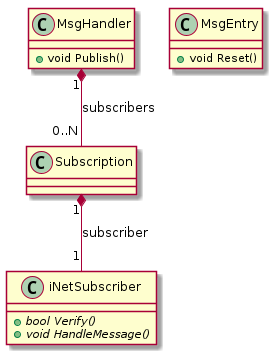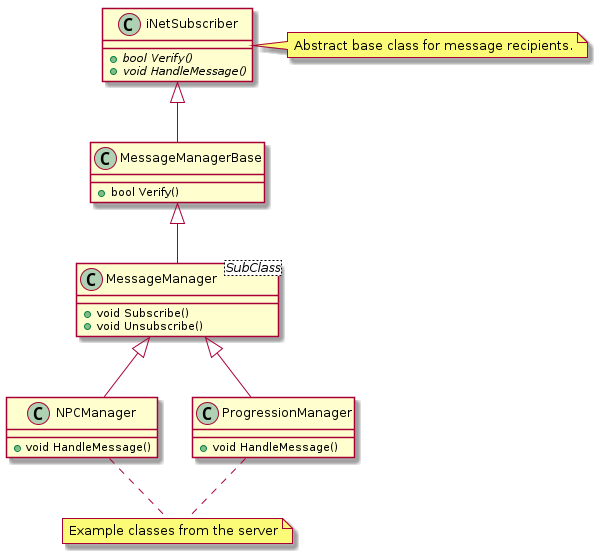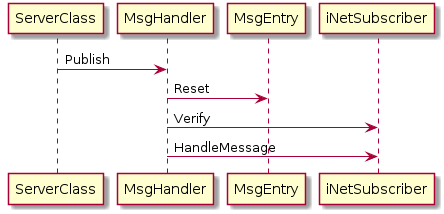Event Handling Design: Difference between revisions
Jump to navigation
Jump to search
| Line 23: | Line 23: | ||
+{abstract} void HandleMessage() | +{abstract} void HandleMessage() | ||
} | } | ||
</uml> | |||
<uml> | |||
class iNetSubscriber { | |||
+{abstract} bool Verify() | |||
+{abstract} void HandleMessage() | |||
} | |||
note right: Abstract base class for message recipients. | |||
iNetSubscriber <|-- MessageManagerBase | |||
MessageManagerBase <|-- MessageManager | |||
MessageManager <|-- NPCManager | |||
MessageManager <|-- ProgressionManager | |||
note "Example classes from the server" as Note1 | |||
NPCManager .. Note1 | |||
ProgressionManager .. Note1 | |||
class MessageManagerBase { | |||
+bool Verify() | |||
} | |||
class MessageManager<SubClass> { | |||
+void Subscribe() | |||
+void Unsubscribe() | |||
} | |||
class NPCManager { | |||
+void HandleMessage() | |||
} | |||
class ProgressionManager { | |||
+void HandleMessage() | |||
} | |||
</uml> | </uml> | ||
Revision as of 19:38, 2 January 2013
Event Handling
Event handling is a speciall case of the Detailed Network Design where messages are published and received inside the server.
Classes


Sequences
